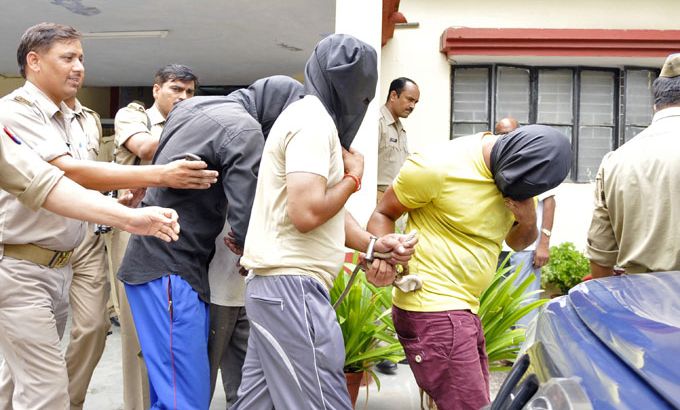
India: The price of change
Will the New Delhi gang rape verdict help change social attitudes and stem violence against women?
The four men found guilty of raping and murdering a 23-year-old woman in New Delhi in December 2012 have been given the strongest punishment possible in the Indian legal system – death.
”The
maximum sentence. After this case the government was forced by public pressure to amend this particular act – the Criminal Law Amendment Act – where harsher punishments have been provided now.”]
Their lawyers say they are appealing. One of the defence attorneys says the sentence is a result of widespread media pressure.
AP Singh said: “When the accused arrived here from jail, they were in tears. They were aware they would receive this sentence. I asked them why they were crying. They said ‘we know we’ll be hanged.'”
For months, people across India have demanded the death penalty as the crime stirred the nation’s conscience.
The rape was brutal – on a bus, in public, during the day. And the victim was so badly assaulted that she died from her injuries.
One protester outside the court said: “This will create fear in their minds. One would think twice and wonder about the consequences before doing anything. Every day we hear about incidents of rape and murder all over. Now all of this will stop.”
But many human rights and women activists worry that it will not prevent rape and assault from happening. India’s parliament did pass a set of new laws in March aimed at protecting women from sexual assault, but critics say the police have been slow to apply them.
The laws criminalise practices that have been going on in India for years. Besides rape, stalking, voyeurism, acid attacks and the forced stripping of women are now specified as crimes.
But while the justice system might be changing, it is the attitudes behind those actions that some say are the problem.
As one mother of a rape victim told reporters outside the court: “More than the legal system, I feel we should start this change at individual homes. We should teach our children, make them morally aware, teach them moral duties, teach them that these things are not right and one shouldn’t do these things. If these are taught at home then I think we will start seeing the results.”
So will the strong punishment make life better and safer for women in India? What can be done to change social attitudes and address violence against women?
Inside Story, with presenter Jane Dutton, discusses with guests: Suhas Chakma, the director of the Asian Centre for Human Rights; Dr Aisha Gill, a reader in Criminology at University of Roehampton; and TR Kakkar, a former police commissioner of New Delhi.
|
“I think using the death penalty to bring about redress in relation to rape cases is problematic …. I don’t think it offers a way forward in terms of addressing sexual violence and violence against women across India or anywhere else in the world …. This verdict is a kind of reaction to the collective anger and it avoids dealing with the real challenge of how do we address violence against women across Indian society and more broadly, beyond India.” Dr Aisha Gill, a reader in Criminology at University of Roehampton |